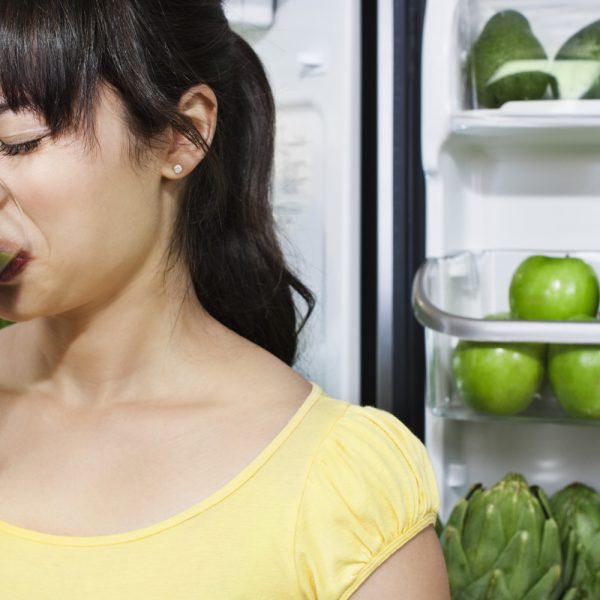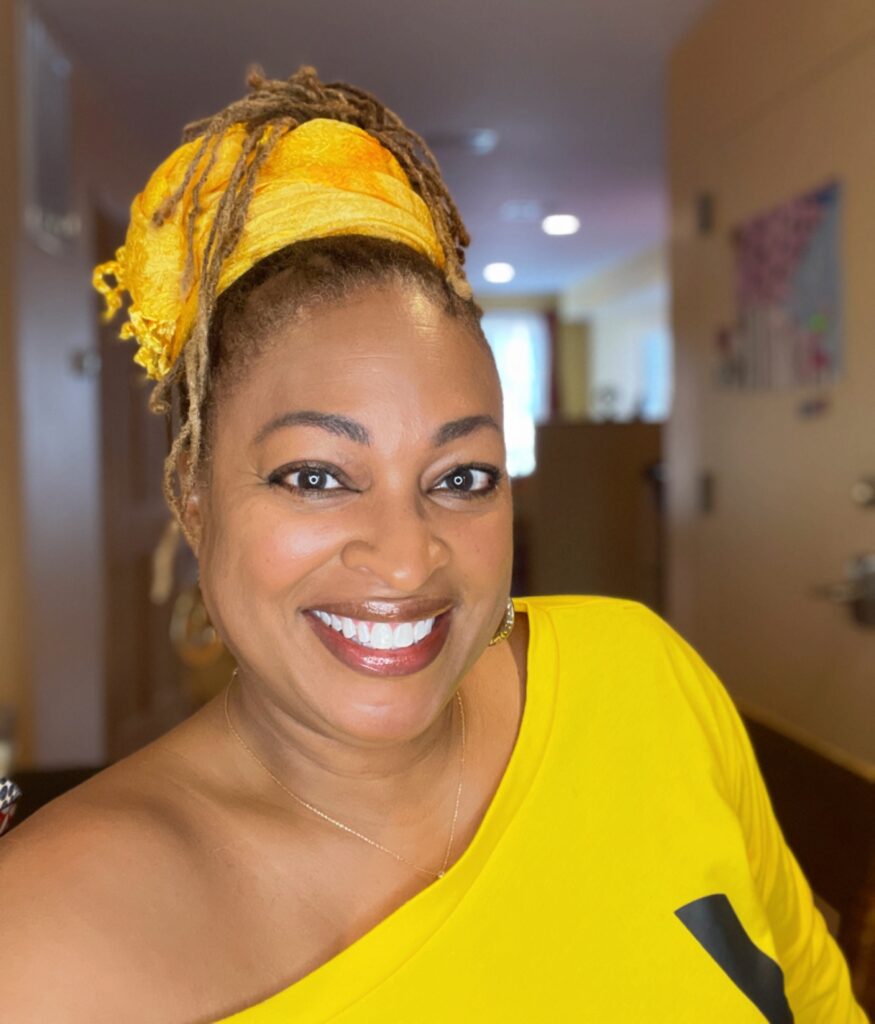When you finally decide that you need to get your life together and start eating to support your health you can come across and kinds of programs and plans, one of them being clean eating.
It sounds reasonable enough–whole real foods, avoiding ultra-processed jank, oh, and how people claim it’s not a fad diet, it’s a lifestyle. Whew, that’s a huge relief because you’ve been around long enough to know that diets don’t work.
And bonus, all of the claimed benefits of clean eating, everything from hair growing, skin clearing, allergies disappearing, weight loss, curing cancer, preventing yeast infections, to making you smell so sweet you’ll never need to use deodorant again. You know how the saying goes, if it sounds too good to be true, it probably is.
The health claims for clean eating are at best extreme exaggerations and at worst just some straight up lies. But how could this be? How could limiting yourself to only the most perfectly healthy foods at all times have a downside? Well, sit down.
The truth is that clean eating establishes a binary view of foods by separating them into clean and dirty, or good and bad, or healthy or unhealthy. Then, this view is transferred onto people, making them clean or dirty, good or bad, healthy or unhealthy based on how they eat.
Clean eating rarely, if ever results in long term good health. It’s just too restrictive and often results in malnutrition, skin and hair problems and even loss of menstrual periods. Clean eating appears to poorly address unmet emotional needs at the expense of physical health.
Instead, clean eating can result in guilt and shame, frustration and obsession. People get carried away with trying to achieve a level of perfection that doesn’t really exist. The healthy human body is an amazing thing, and it’s not so fickle that it would fall apart from a little Cheetos or Froot Loops, trust me.
What exactly is clean eating?
There is no concrete or science-based definition of clean eating. Some people think it means exclusively eating real, whole, unprocessed foods. How much processing is allowed for a food to be considered unprocessed is unclear. Freezing is processing, grinding is processing, juicing is processing. Are they prohibiting foods that have had any of those processed performed on them? There does seem to be agreement that eating clean means avoiding foods with additives, whether those additives are harmful or not.
Some clean eating enthusiasts feel that not only should food be unprocessed, but that certain foods and groups should be eliminated. Some say that you have to forgo meat and dairy (basically vegan), but there is absolutely no evidence proving that being meat and dairy free produces better health outcomes than people who do eat high quality meat and dairy in appropriate amounts.
Others swear that clean eating can’t include gluten. Gluten is a naturally occurring protein in grains. Some people have an intolerance to it, but if you don’t there’s not a problem. Some go even further to eliminate all non-vegetable carbs.
And then, I think people started to throw in arbitrary food items that must be avoided to eat clean: sugar, salt, and alcohol. I believe that these were just added on to make clean eating more miserable than it already is. There’s a whole million dollar industry out there built around making clean eating a struggle.
Depending on which iteration of clean eating you try, you’ll need to purchase some expensive kitchen gadgets to manipulate the food to make it taste tolerable.
Oh, and they threw in a bunch of expensive, exotic “superfoods” for good measure, as well as organics. Because of course clean eating can’t be accessible to the unwashed masses because one feature is that it must be an indicator of a certain kind of identity.
With clean eating, life is dominated by worrying about what your next meal will be. Often people avoid eating out or social events because they’re worried about what horrible food might be served. But they can relieve some of the loneliness by seeking solace in online extreme clean eating groups that further fuel their clean eating obsessions.
An amusing look about how this all got started
I started my search for the history of clean eating and came across a podcast on BBC by Danish food lover, Sofie Hagen. It’s pretty entertaining so if you have time check out The Unexpected History of Clean Eating yourself.
Hagen talks about how the moralization of food was going on all the way back in the 19th century. This crazified woman, Anne Moore of Tutbury claimed that she hadn’t eaten or drunk anything for 5 years, and that because of god she’s still alive and not even hungry. I’m not sure that this is the earliest, though it is one of the early instances of linking the food we eat to morality and purity.
Ole’ girl was separated from her husband, shacked up with her lover, by whom she had 2 children. Back then, this was scandalous!
She was already shady but when she found herself impoverished she rationed food. Then she got the bright idea to use this for profit. Christians believed in her feigned piety and devotion to god and religion. They made donations to support her, and this served two purposes, to enrich her financially and to create a facade of purity. Townspeople started writing pamphlets about her and soon doctors and nosy folks started to pay to visit her and even launched an investigation that included surveillance to confirm that she wasn’t eating.
Of course she was perpetrating a full-blown fraud. But,
“Starvation, with all the discomforts it entailed, was one of the few ways for a working woman to gain social and financial advancement.
~Tom Ruffles
*side eye*
The investigation of her became so strict that she actually wasn’t eating, and began to rapidly lose weight and become sick. Her condition deteriorated so much that she thought she would die, and that ended the scam. Later she wrote this poem:
For several years, t’was understood,
that I could take no sort of food
That I, to human want a stranger
could fast without a pain or danger.
When this report it’s way had found
Sages from all the country round
Appeared who well this tale received
And more than holy writ believed
They came to me with cautious greeting
And saw that just then I was not eating
And turning up their wondering eyes
Sent their warm raptures to the skies
As if they n’er had chance to see
Nor even thought such thing might be
That any woman at her will
Could keep her mouth unmoved, still.
Good grief. So there was a close link between the “goodness” or “purity of women” and controlling their eating. Food and sex are considered naughty. Here’s an opening to one of my favorite books, “Aphrodite: A Memoir for the Senses”,
“I repent of my diets, the delicious dishes rejected out of vanity, as much as I lament the opportunities for making love that I let go because of my pressing tasks or puritanical virtue… I dedicate these erotic meanderings to playful lovers and, why not? Also to frightened men and melancholy women.”
~Isabel Allende
Just look on the innanets. There seems to be no shortage of bone skinny white goody-two-shoes wellness gurus all over social media gleefully skipping around in farmer’s markets with a fake basket of vegetables, shaming everyone not like them. To them, they represent the purity and wholesomeness that we all should aspire to be.
The problems with clean eating
It usually begins with a very real health challenge that eaters are looking to resolve in a natural manner. Convinced that everything causes “toxins” to be caught up in the body, and that processed food is the root of every ailment known to humankind, people start careening down a very slippery slope into an unhealthy obsession. Add the sought out camaraderie in online communities and the sudden internet fame of ordinary people and you have a hot mess. Just look at the “clean eating” hashtag on Instagram and you’ll see what I mean.
For many, once they started the online exhibition of their wildly popular clean eating “journeys” it’s hard to get off that bandwagon, and often face extreme backlash from former fans. The problem isn’t because of trying to eat for health. The problems arise when the labels (eating clean, vegan, paleo, etc.) take on a life of their own.
In extreme cases, clean eating can deteriorate into what some are calling orthorexia, an eating disorder. Orthorexia is not a medically recognized term but it refers to people who become punitive purists about what they can and can’t eat. Now, you may not be at risk for developing orthorexia but you should be careful not to inadvertently promote and advance this harmful way of living.
I naively believed that black women, not necessarily individually, but as a group were at least somewhat immune to this phenomenon, as a result of our shared food cultures, but boy was I wrong! I’ve actually joined several online healthy eating groups of black women with these unrealistic views of clean or healthy eating. Unfortunately it usually begins with sundry food myths encouraged by medically untrained “gurus” (no links from here) with some seriously outlandish claims.
The difference though, is that I haven’t seen the ugliness and threatening behavior that exists in the other groups (thank goodness). Nevertheless, there is still some harm done in that clean eating results in frustration and diet cycling that in the end, are worse than if healthy eating was never attempted at all.
Healthy eating does not need to be extreme, painful, or anything requiring a drudgerous journey, no matter if you are looking to lose weight or protect your health. So forget about clean eating and all it’s complications and just go back to the basics. Retrain your mind to listen to your body’s cues about what it needs and when. And finally, just learn how to prepare healthy food in whatever circumstance you currently live with.


 I’m LifeBliss Lisa and I coach black women on how to create intentional, healthy, soft lifestyles.
I’m LifeBliss Lisa and I coach black women on how to create intentional, healthy, soft lifestyles.